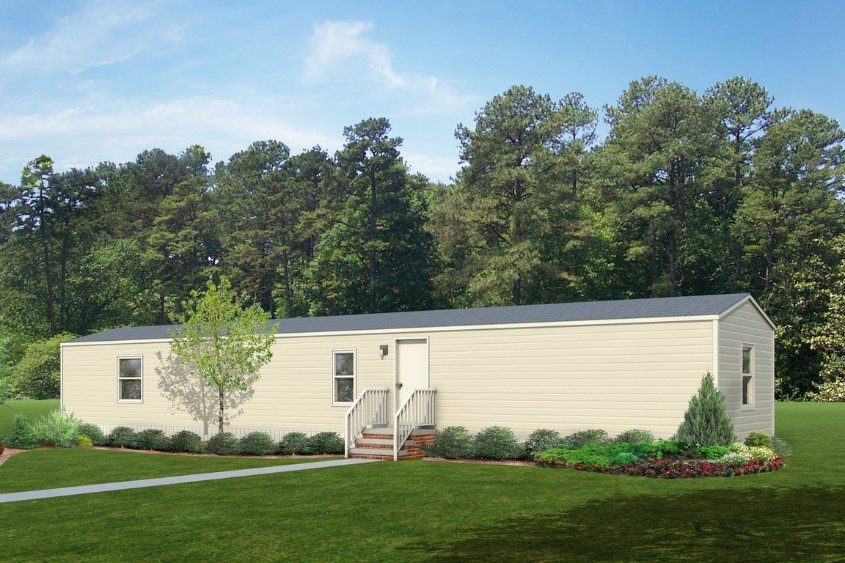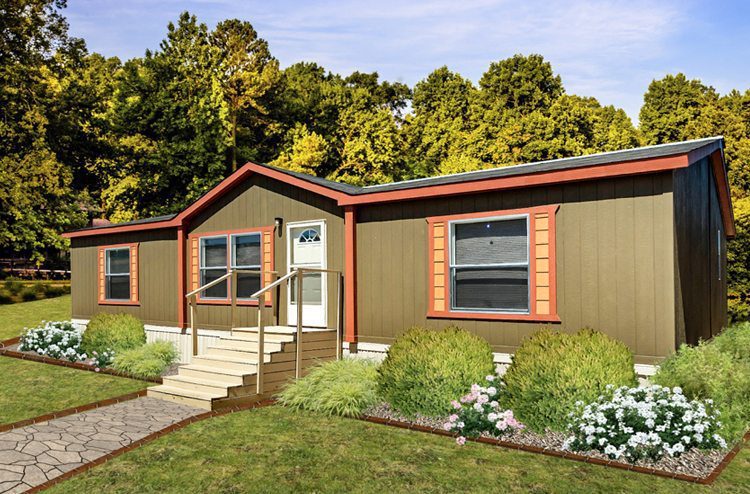Tailored Solutions for Mobile Homes in Laredo
Are you searching for a comfortable and affordable place to call home in Laredo, TX? Look no further!
Manufactured Housing Consultants offers a diverse portfolio of mobile homes designed to meet your unique needs and budget. Our selection includes a variety of styles, sizes, and features, ensuring you’ll find the perfect living space to suit your lifestyle.
We will explore how you can determine the value of your next mobile home.
Single-Bedroom Manufactured Housing

Single-bedroom manufactured homes for sale are ideal for individuals and couples seeking a cozy and efficient living space. These homes offer a perfect blend of comfort and functionality, making them an excellent choice for those who value simplicity and affordability.
Key Features of Our Single-Bedroom Modular Homes:
- Compact Design: Efficient use of space without compromising on comfort.
- Modern Amenities: Equipped with essential features for a comfortable lifestyle.
- Customizable Options: Choose from various finishes and layouts to suit your preferences.
- Affordable Pricing: Enjoy excellent value for your money.
Experience the Benefits of a Single-Bedroom Modular Home:
- Low Maintenance: Spend less time on upkeep and more time enjoying your life.
- Energy Efficiency: Save on utility bills with energy-saving features.
- Quick Installation: Move into your new home in a matter of weeks.
- Peace of Mind: Enjoy the security and stability of homeownership.
Discover the perfect single-bedroom modular home for you at Manufactured Housing Consultants. Contact us today to schedule a viewing or to learn more about our available options.
Spacious Double Wide Homes

If you’re looking for double wide new mobile homes offer the perfect combination of space, comfort, and affordability. These spacious dwellings are ideal for growing families or those who appreciate ample living areas.
Key Features of Our Double wide Homes:
- Generous Floor Plans: Enjoy multiple bedrooms, bathrooms, and spacious living areas.
- Modern Design: Sleek and stylish interiors with contemporary finishes.
- Customizable Options: Choose from various layouts and features to suit your preferences.
- Affordable Pricing: Enjoy excellent value for your money.
Experience the Benefits of a Double wide Home:
- Comfortable Living: Ample space for entertaining and relaxing.
- Family-Friendly Features: Ideal for families with children.
- Customizable Interiors: Create your dream home with personalized touches.
- Quick Installation: Move into your new home in a matter of weeks.
Various Designs and Sizes
At Manufactured Housing Consultants, we understand that every buyer has unique preferences and requirements. That’s why we offer a wide range of mobile and manufactured home designs and sizes to suit your individual needs.
Explore Our Diverse Selection:
- Traditional Styles: Classic designs with timeless appeal.
- Modern Aesthetics: Sleek and contemporary designs with modern features.
- Open Floor Plans: Spacious and versatile layouts for entertaining and relaxing.
- Compact Designs: Efficient and affordable options for individuals and couples.
- Customizable Features: Choose from various options to personalize your affordable mobile home.
Discover the Benefits of Our Diverse Selection:
- Find Your Ideal Home: Choose from a variety of styles and sizes to match your preferences.
- Maximize Your Space: Select a design that best suits your lifestyle and needs.
- Create Your Dream Home: Personalize your home with customizable options.
- Enjoy Affordable Living: Find the perfect home within your budget.
Visit Our Showroom or Contact Us Today
Explore our wide selection of mobile homes and find the perfect home for your family. Visit our showroom or contact us to schedule a viewing and learn more about our available options.
Prime Location Mobile Homes for Sale in Laredo, TX
We understand that location is a crucial factor when purchasing a new mobile home. That’s why we work closely with reputable mobile home communities in Laredo, TX, to offer you a variety of prime locations to choose from.
Benefits of Our Prime Locations:
- Convenient Access: Enjoy easy access to local amenities, schools, and transportation.
- Beautiful Surroundings: Live in a peaceful and desirable neighborhood.
- Community Amenities: Enjoy shared facilities like swimming pools, parks, and clubhouses.
- Secure Environment: Benefit from gated communities and 24/7 security.
Find the Best Manufactured Homes for Sale in Laredo
At Manufactured Housing Consultants, we’re committed to providing you with the highest level of service and expertise. Our team of experienced professionals will work closely with you to understand your specific needs and preferences, ensuring you find the ideal mobile home for your lifestyle.
Our Services Include:
- Personalized Assistance: Our dedicated team will guide you through every step of the home-buying process.
- Extensive Selection: Explore our diverse portfolio of mobile homes to find the perfect match.
- Financing Options: We can help you secure affordable financing to make your dream home a reality.
- Location Guidance: We’ll assist you in finding the ideal location for your new home.
- Post-Sale Support: Enjoy ongoing support and assistance after you’ve purchased your home.
Contact Us Today to Get Started
Ready to find your dream mobile home in Laredo, TX? Contact us today to schedule a consultation or to learn more about our available options. We’re excited to help you embark on this exciting journey and find the perfect place to call home.

